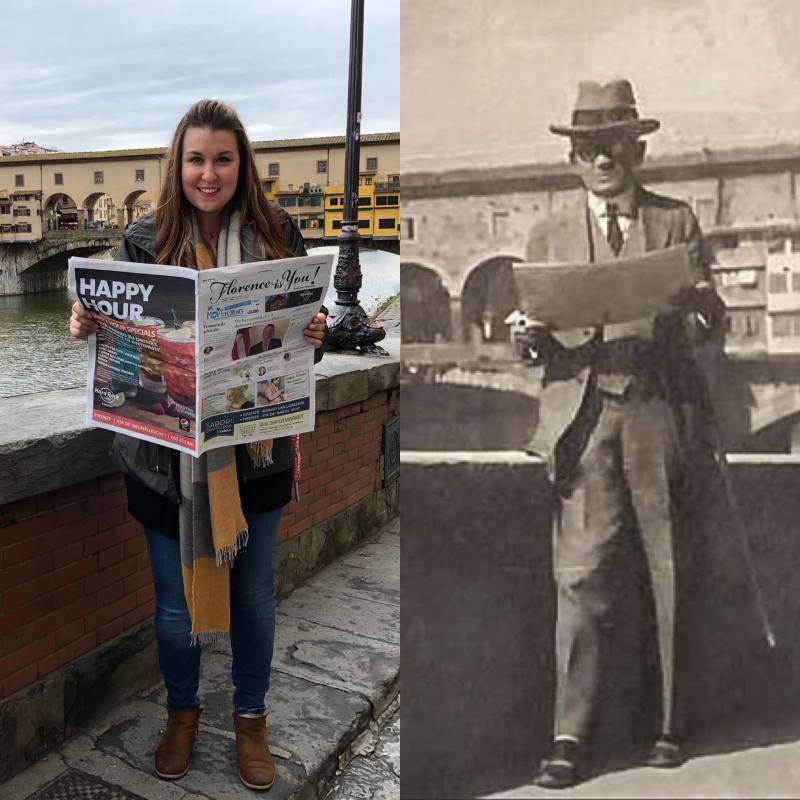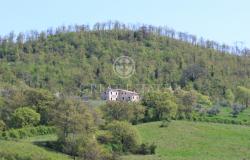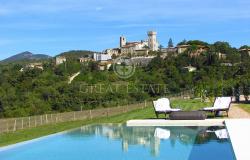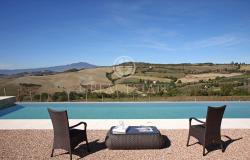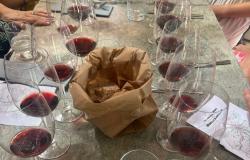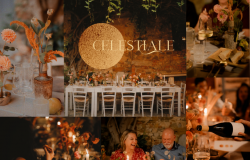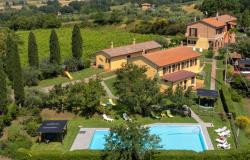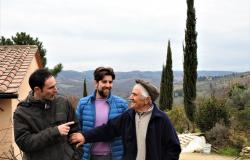“The moment we spotted Pienza from the road, perfectly placed atop the rolling Tuscan hills, I was transfixed. We pulled over to take in the first view of my ancestral town. It was so quiet and the air around me was thick with the smell of burning olive branches. I just knew that was the exact same view that my ancestors saw when riding their horses home after a journey to Firenze to conduct family business or visit a nearby relative.”
The protagonist of our monthly series about traveling to Italy to research one’s roots and visit ancestral towns is Megan Kunze, who shares a story of commitment and perseverance to discovering more about her Italian ancestors. It all started in Kansas City, where Megan grew up surrounded by a strong Italian American community, and hearing stories about a mysterious noble great-grandfather who left behind his wealth and prestige for an adventurous life in America. While Megan has not pieced together yet all the elements of her ancestors’s stories, nor has she been able to meet any relatives in Italy, she continues to search because, as she says, “By learning their stories, we keep them alive.”
What prompted you to begin your search to trace your Italian roots?
I grew up in Kansas City, MO, a town with a strong Italian American community. I went to school with lots of kids who had Italian sounding last names and grew up with the rich culture and even the language of their ancestors. I knew that my own ancestors were Italian too, but I was always shy to say anything because my own family knew so little about our own roots. None of the history or traditions were passed down from my third great-grandfather, Albert Alberti, who was born in Florence. When he immigrated to America, he wanted to be seen as an American and that was that.
The only connection I had to my ancestry was a story I heard as a child, that Albert was born into Italian nobility and ran away from his family responsibilities. My great grandmother, Charlotte Alberti, often shared that he held the title of Count, but that he gave up that title, money and family land to come to America in his early 20s. His family wanted him to join the Catholic church, but he was an adventurer and had other ideas for how his life would go. So he sold his family's gold pocket watch and stowed away on a ship to America.
We have very few photos of my great-grandfather. Looking at them made me imagine the kind of life he lived in Italy. I wanted to know what foods he ate, what traditions his family practiced and what the house he grew up in looked like. He must have been a very serious man. He was always well dressed and usually holding a cigar. My family knew a bit about his life in America, thanks to some research done by two of my great uncles. Albert became a successful and wealthy man, as the first Italian Superintendent of The Metropolitan Life Insurance Company in 1897.
I wanted to know more about my Italian roots, and in 2018 I visited Florence for the first time. It was a short trip but I got to stand in the footsteps of my Italian ancestor at the Ponte Vecchio. I saw many things with the name of Alberti in Florence. In fact the name Alberti is nearly everywhere! I couldn’t help wondering - how is this nobile Alberti clan connected to my own ancestors? I went home from that visit still lacking any evidence or clues to who Albert Alberti and his family really were, but I was determined to find out!
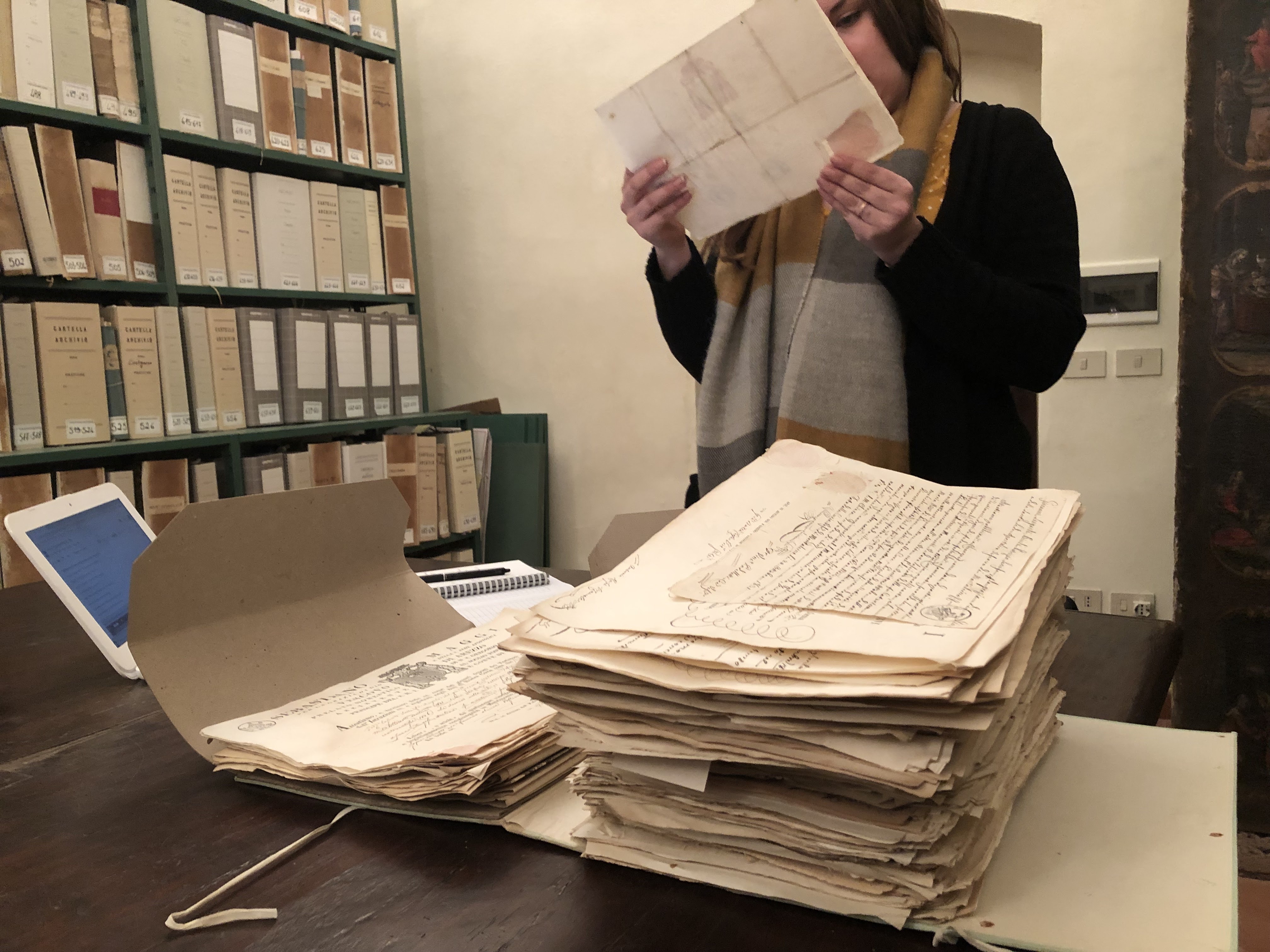
Please describe the process. Did you already know your ancestral town (by ancestral town I mean the town where your relative(s) who emigrated was from)? If not, how did you find it? Who or what was your first resource when you started your search for your ancestral town and Italian relatives (a relative, an office, an online service, etc.)?
I knew from a few old documents that my great uncle Danny had in his records that Albert Alberti was from a town that sounded like Pienza and was born around 1855 - but the handwriting on the document was poor. So confirming this information was the first step.
Later in 2018, my cousin Trisha and her husband traveled to Florence and obtained a transcription of his birth record from the Firenze Archives. I read the information in this record and discovered for the first time his Italian name - Alberto Alberti (not the americanized Albert). Also listed were the names of his mother and father, Giuseppe Alberti and Maria Fioravanti. This record was confirmation that they came from Pienza - but no mention of any Italian nobility!
I had what I needed to start uncovering more facts about my Italian ancestry. The next step was to find out where to search the records of Pienza.
A Google search led me to the Antenati website (http://www.antenati.san.beniculturali.it/) and I started searching, page by page of the records online. Through this website I found the indexes for the marriage of Giuseppe and Maria, and other interesting information. I learned that Alberto’s father, Giuseppe Alberti, was a pharmacist in Pienza in 1850, but that he was actually born in neighboring Abbadia San Salvatore. The online records also provided the names of another generation back for both of Alberto’s parents and grandparents, and so it went on - weeks became months of clicking through records. Eventually revealing that Alberto Alberti had many siblings born in Pienza as well!
The records on Antenati were extremely helpful, but most were only indexes of full records and so they were missing some of the rich details that can be found in the full parish archives. Easy right? Pull up the records for Pienza Cathedral (Concattedrale di Santa Maria). Only one problem, those archives aren’t online!
Luckily, the Antenati website also provides a list of all the parish archives in Italy by province. A quick search led me to the Archivio del Comune di Pienza. I emailed the archivist in Pienza, requested a special appointment to search the archives and waited for a reply. A few days later, an email came from Signor Giorgi in beautiful and very formal Italian. With the help of Google Translate and many apologies for my poor knowledge of the language, we managed to schedule my visit. I booked two tickets that same day to return to Florence in March of 2019 and finally visit my ancestral town.
I did one more thing online, sort of on a whim. I quickly created photo requests on FindAGrave.com, for the headstones of any Alberti buried in the Pienza Cemetery. I knew the odds of someone in Pienza seeing the request and fulfilling it were slim to none, but I wanted to cast a wide net in my search for my ancestors. It would take almost a year, but this one action produced an incredible and almost unbelievable result!
Did you discover any amazing story during the process of searching for your Italian relatives?
I wish I could say that I discovered a long paper trail of Italian nobility in my family, but that story remains solidly in the family lore category for now. The most incredible thing that happened during the search for my Italian records was being contacted by a total stranger and resident of Pienza named Claudia. Claudia is an American expat who lives in Pienza with her husband and saw my request for photos on the Find A Grave website. She contacted me through their chat messenger offering to help me locate more information about my ancestors! She had some bad news to deliver right off the bat. She saw my photo requests and looked for my ancestors in the cemetery, but no Alberti were buried in the old part of the cemetery. In fact, none of the names I was looking for existed at all in the Pienza cemetery. She shared that this was likely due to the practice in Italy of removing old bones and placing them in the ossuary to make room for new burials.
Claudia became my genealogy angel very quickly. She asked me to share all the information I knew about the Alberti of Pienza. We corresponded via email almost every day and she was the person who told me that I likely still had distant cousins, through the Fioravanti line (Alberto Alberti’s maternal line), living in Pienza! In fact she was familiar with a few of the other surnames in my Italian family tree as well. After a few emails back and forth, she suggested that I reach out to a friend of hers, a proprietor of the Hotel Corsignano in Pienza, Signor Fioravanti, and speak with him about his ancestors.
I drafted an email to Signor Fioravanti explaining that I was an American researching my Italian roots. I shared the names of my Pienza ancestors and that I suspected we were distant cousins. The reply came not from him, but from one of his daughters, Laura. She wrote that it was nice to hear from me, but that her ancestors were not from Pienza and she was sorry that she did not recognize any of the names I shared. I was initially discouraged at this news but not ready to give up on trying to connect our families.
Please describe how you felt the first time you walked the streets of your ancestral town.
In March of 2019, my husband Brant and I drove from Florence to Pienza. I felt anxious and excited the entire trip. I was nervous that what minuscule Italian I spoke would not be enough to communicate with the archivist. I was thrilled to be finally one step closer to cracking the family mystery. Was my great-grandfather really a Count? I hoped that something in these physical records would reveal all the answers.
The moment we spotted Pienza from the road, perfectly placed atop the rolling Tuscan hills, I was transfixed. We pulled over to take in the first view of my ancestral town. It was so quiet and the air around me was thick with the smell of burning olive branches. I just knew that was the exact same view that my ancestors saw when riding their horses home after a journey to Firenze to conduct family business or visit a nearby relative.
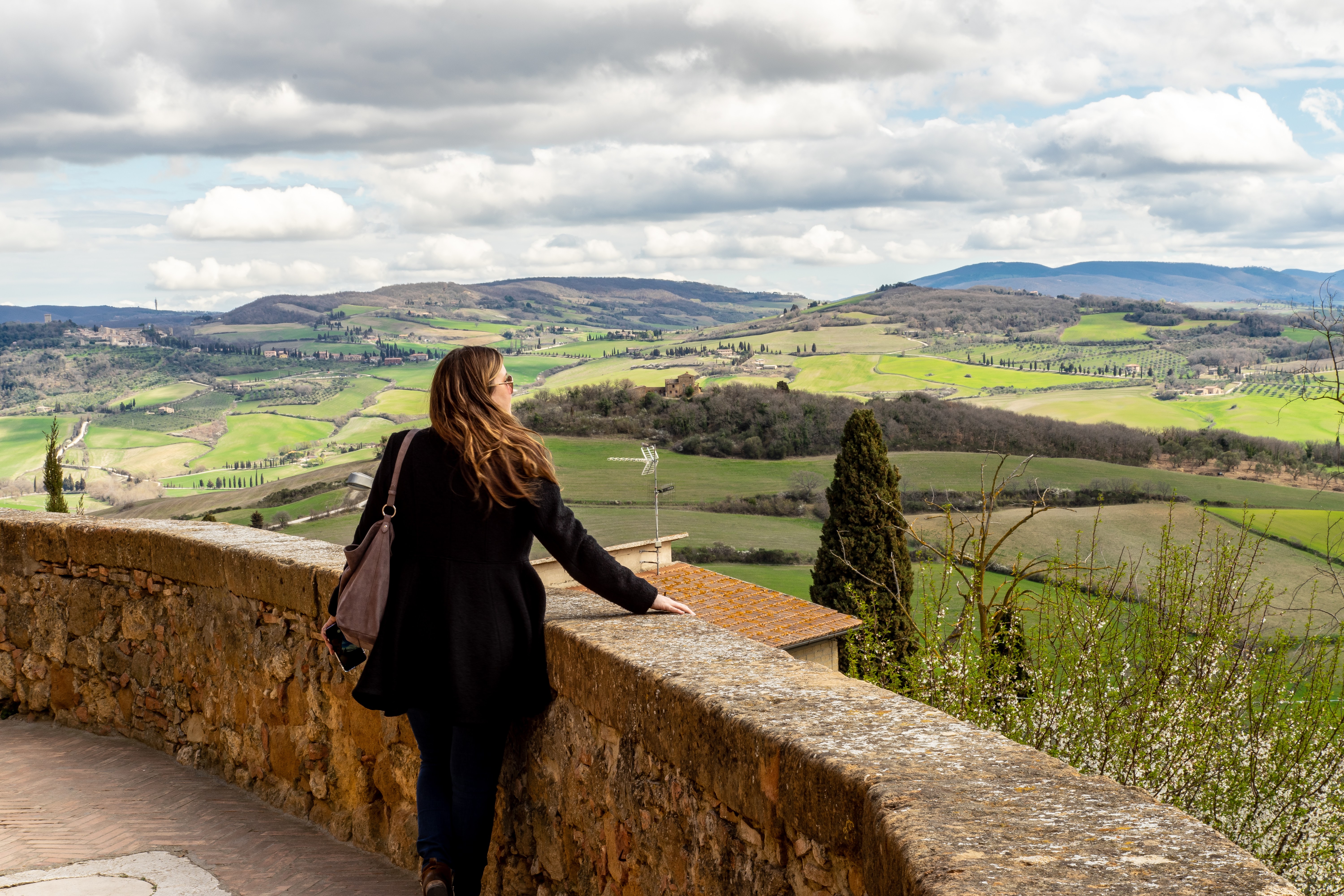
When I first arrived in the city, and looked around at the ancient mossy stone walls, I felt strangely connected with everything around me. I wanted to walk every inch of those streets and explore the town that my great-grandfather once called his home. With a few hours to spend before my appointment at the archives, my husband and I strolled up and down the narrow streets of Pienza. We stopped at a little shop to taste the local cheese and wine, and again my senses were connecting me to some ancient memories tucked away in my DNA.
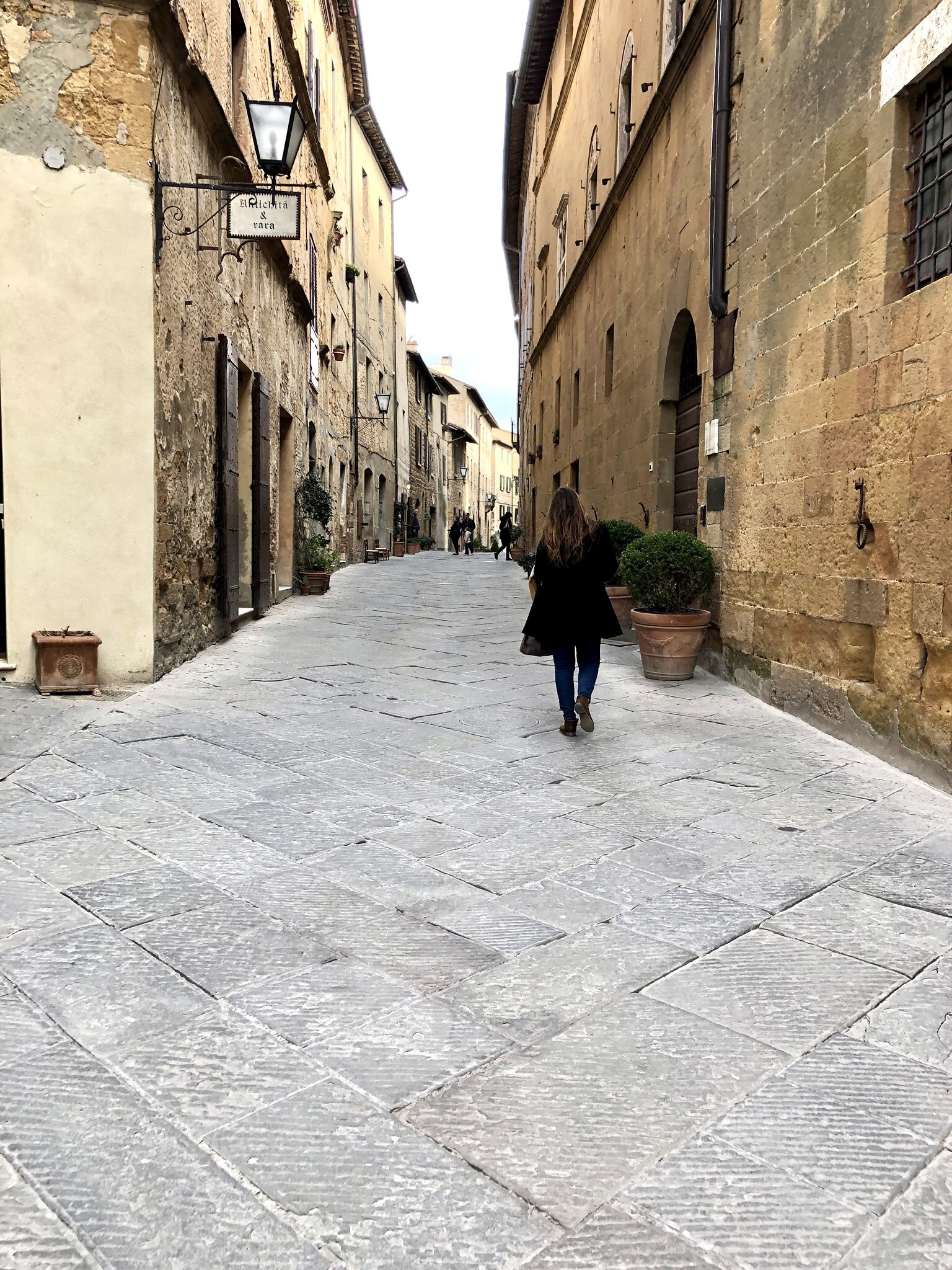
The archives were located in a small stone room, just off the main square, Piazza Pio II, and adjacent to the beautiful Pienza Cathedral. The room itself was packed wall to wall with fragile old books with crumbling pages and it was freezing! But I was so excited to be there, actually touching the marriage and baptismal records of my Alberti ancestors that I didn’t mind the cold.
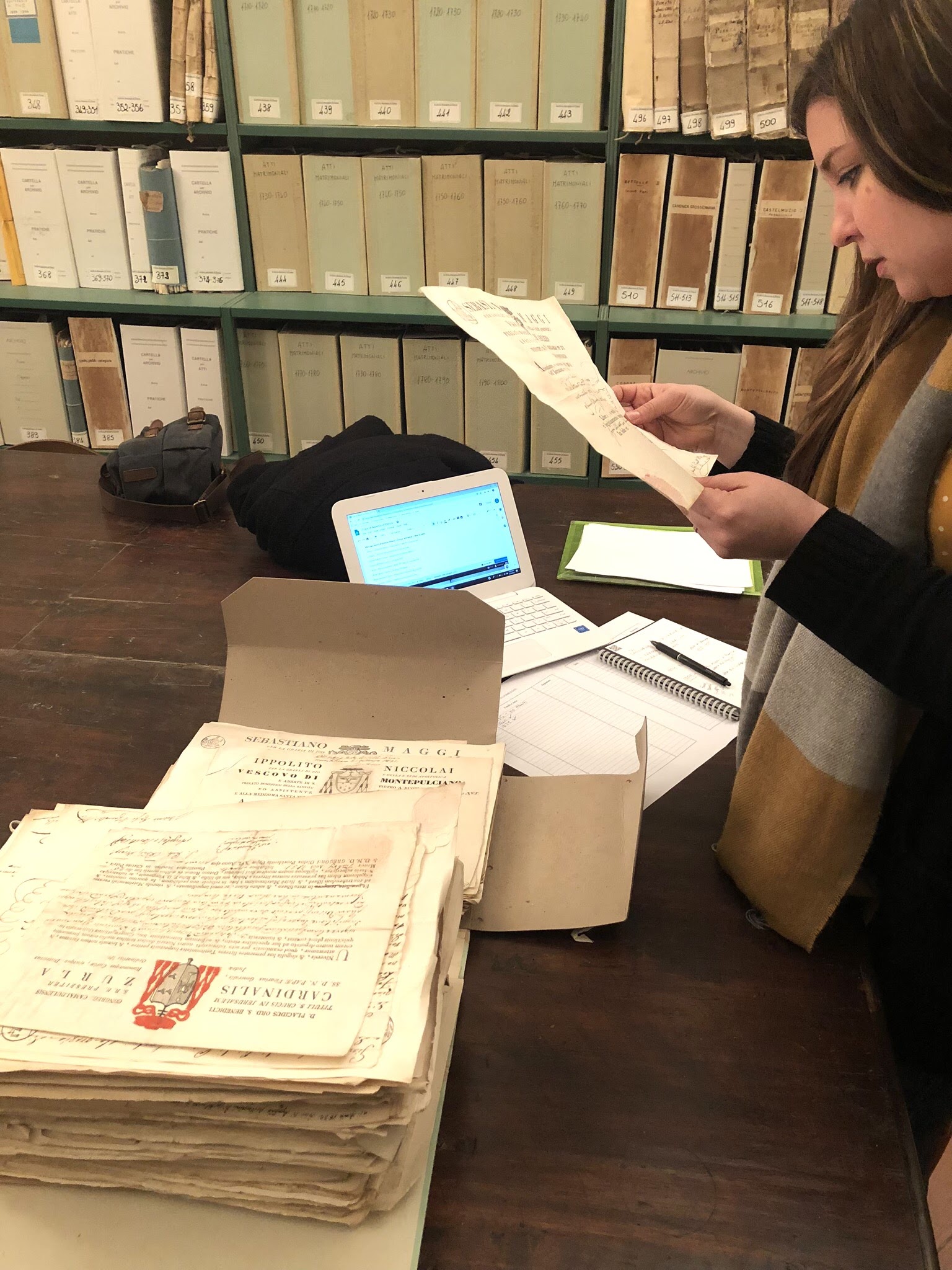
Please describe the moment when you first met your Italian relatives. How did you feel? Any fun anecdotes about meeting your Italian relatives?
I haven’t had the opportunity to meet face to face with any Italian relatives yet. February of 2020 was the last email correspondence I had with the Fioravanti family. I was corresponding with one of the daughters in the family and she shared the names, birth and death dates of her father’s direct paternal ancestors. Their family are originally from Abbadia San Salvatore - just 30km from Pienza. The same town where my fourth great-grandfather, Giuseppe Alberti, was born in the year 1812. I am still working to connect the paper trail between my ancestors and theirs. I have reached a working theory that her fourth paternal great-grandfather, Antonio Fioravanti and Alberto Alberti’s mother, Maria Fioravanti were first cousins.
I’m not sure they were quite as excited as I was at our having a common ancestor, but they were nonetheless friendly and open to sharing and speaking with me further as we continue to explore our shared ancestry.
What were the obstacles, if any, during the process of finding your relatives and then getting in touch?
A big challenge when I first started searching was not being familiar with the different comuni in Siena. I didn’t realize how small Pienza really was before I visited and had no idea that Alberti is not a surname native to Pienza. I spent many months feeling frustrated and not knowing where to search for records in the many other small towns surrounding Pienza.
The biggest remaining obstacle in my continued search to find my relatives in Italy, are that the records available online have mostly run dry. To find out more, I need to spend more time on the ground and more time searching through archives in person. I discovered through the Pienza archives that Alberto Alberti had many sisters (Assunta, Francesca, Anna and Albertina), all born in Pienza. At least one of them, Assunta, lived through WWII and Nazi occupation of Italy and died in 1947 in Florence. She was married to a man named Antonio (his surname is unknown to me). Nothing else is known about those female lines of the Alberti family. I would love to discover if any of his sisters had children and if there are living descendants of these women in Italy. Did they scatter to other parts of Europe during the war? I hope to find out one day. For now, my search for relatives in the direct Alberti line will continue on!
Ultimately, what has the experience of reconnecting to your Italian roots meant to you?
I believe that by understanding where we come from, the events that our ancestors experienced, the food they ate, the ways that they lived life - knowing all of these things helps us understand and connect with ourselves better. Our ancestors’ DNA was impacted by all the events of their lives and the lives of their ancestors before them and passed down to us. We carry their genetic information in our blood and with that the responsibility to learn about and honor their origins. By learning their stories, we keep them alive.
Since Covid-19 has ravaged the world and hit Italy especially hard, I have felt even more desire to find and hopefully one day meet my Italian relatives. Life is so precious and can be so short. We have to spend the time we have with family and following our passions. The spirit of resilience and the faith of the Italian people is something incredible to witness from afar, and I can only hope that even a little bit of that same spirit lives in me through my Italian ancestors.
